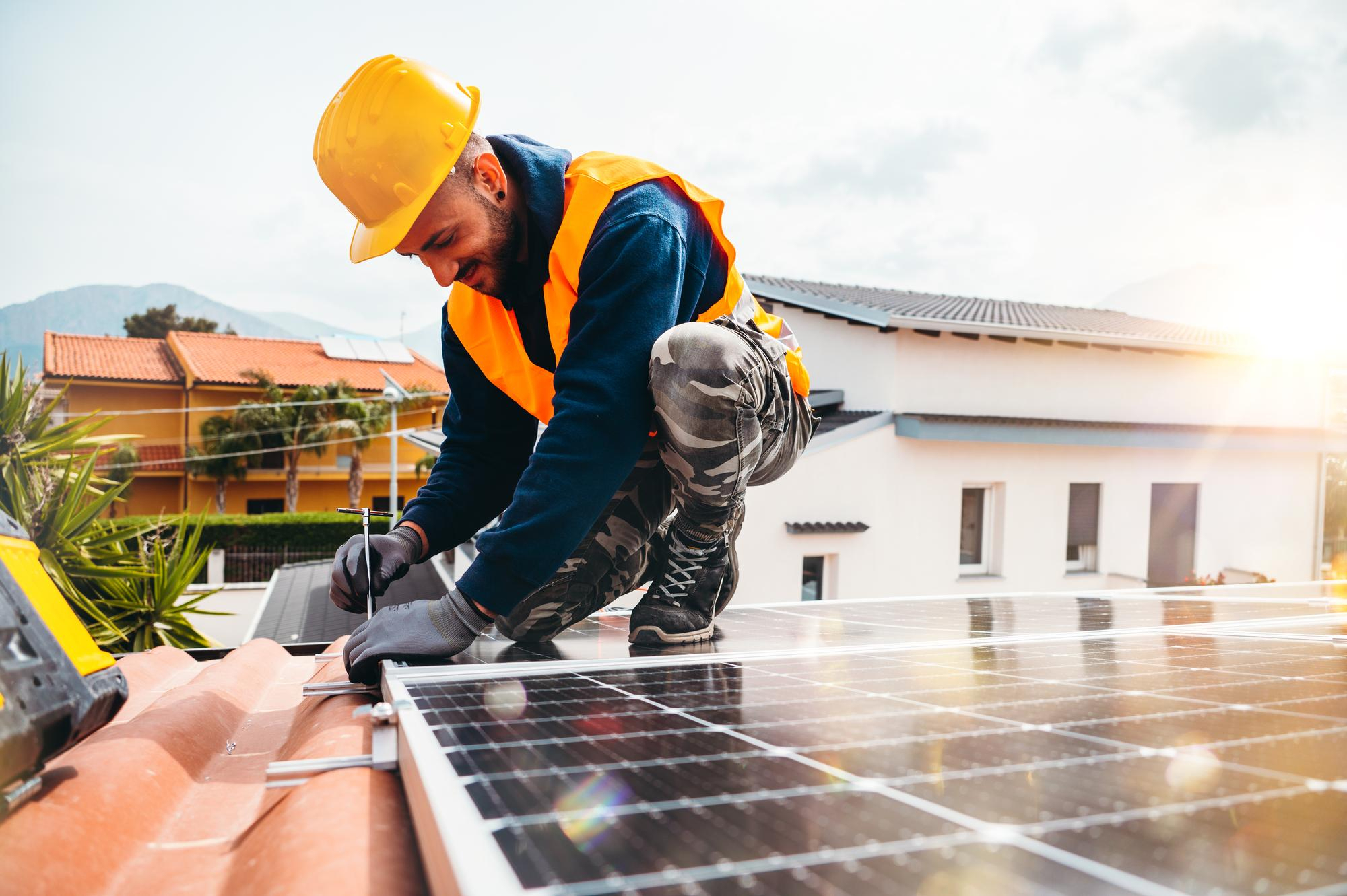Do you love turning a wrench and feeling the sun heat your skin? If you’re already a homeowner, perhaps you’re thinking of going the DIY route when it comes to solar installation.
But how much do you know about solar power? Are you armed with the correct knowledge to install without the help of an expert?
We’ll walk you through the pros and cons of a DIY solar installation. Read on to see if using your skills is the best course of action for you.
What Are the Pros of DIY Solar Panels?
DIY solar panels provide several advantages over professionally installed versions. The most prominent of these are:
Lower Cost
DIY solar panels enable homeowners and businesses to cut costs by buying and assembling solar panel components themselves onsite or via an online platform. Solar panel components such as photovoltaic cells, wires, and frames can be purchased or as complete kits, depending on the user’s needs.
Because individuals and businesses aren’t relying on professional installers or middlemen, they can save a great deal of money on setup costs.
Ease of Installation
Unlike professional-installed systems, DIY solar can be installed by anyone with basic home improvement skills. This, in turn, can save homeowners time and money, as there is no need to hire a professional to conduct the installation.
DIY solar panel kits provide detailed, easy-to-understand instructions. This can help guide a potential solar installer to get the job done.
Portability
The size and strength of these panels allow them to be lightweight and transported between locations. This makes DIY solar panels ideal for camping trips, off-grid living, and other activities.
Their flexibility and compatibility with other simple renewable energy sources are other benefits of DIY solar panels when it comes to portability. You can read more here to ensure you have someone to handle all the details, including designing a system suited to each individual.
No Need for an Electrical Connection
Using DIY solar panels, users can tap into the sunlight as a source of energy and are not tied to an electrical connection. This creates many advantages, including providing users with a greater degree of freedom and the ability to control their energy sources.
This is especially beneficial for those living in rural areas. It allows them to feed energy back into the grid, creating greater energy autonomy.
Ability to Customize
DIY solar panels allow the user to customize the system to their own needs and preferences, such as size, power output, and cost. DIY solar kits are also helpful for those who want to build their solar array. Building a solar array using a DIY kit lets the user ensure their system is tailored to their needs and requirements.
For example, a person could choose the exact type of solar panel, the amount of wattage the system will generate, and the amount of space required to install the solar array. With the ability to customize their solar system, users can rest assured that their DIY system will generate the power they need and meet their energy requirements.
What Are the Cons of DIY Solar Panels?
When it comes to harnessing the power of the sun with DIY solar panels, there are a few drawbacks to consider before committing to this project. This includes:
Safety Concerns
Installing solar panels requires special knowledge or training, which is difficult for an untrained person to do. It can be dangerous if done improperly, leading to injury or even death.
Without proper safeguards in place, such as grounding systems and safety switches, high-voltage electricity from the sun can be fatal. DIY solar installation can be dangerous unless you have experience in these areas or are working with a qualified professional.
Lack of Warranties or Guarantees
Repairs or a replacement may be expensive or impossible if the panel is not installed or later malfunctions. The cost of individual components in a DIY solar panel system can be higher than a complete pre-made system from the store.
Companies that manufacture pre-made systems are more likely to provide specific warranties on their products or a guarantee against defects that may appear in them. So, if a faulty component is used in DIY solar panels, the manufacturer’s warranty will not cover the damage.
Ineffective Power Output
Inadequate ventilation or the use of the wrong wiring can make the DIY systems operate at a much lower efficiency than they should. As a result, the expenses spent on DIY solar panels may not pay off due to their inefficiency and inability to produce the desired power output.
The Legality of DIY Solar Panels
In other cases, the local authority may not allow the use of DIY solar panels for safety and other reasons. Thus, when pursuing the use of DIY solar panels for energy production, it is important to research and understand the applicable local laws.
DIY solar panels can offer an increase in energy production, help reduce electricity bills, and increase sustainability, but only when done legally and with the right permits.
Roof Layout Concerns
If your roof lacks a uniform angle or consistent orientation, it could be more difficult for you to mount the solar panels in a manner that optimizes energy efficiency. Similarly, if the roof is not broad and does not have a high enough bearing capacity, it could be a factor that hinders the success of your solar panel installation.
Additionally, if the roof is facing east or west, chances are that it will not be suitable for a DIY solar panel since it will likely not receive enough sunlight to convert it into usable energy. These roof layout concerns can make it more of a challenge to install and construct DIY solar panels, leading to an inefficient solar panel system.
Is DIY Solar Installation for You?
DIY Solar Installation is certainly a risk, but the potential reward might be worth it. It can save you money and help save the planet. If you are brave enough to take the chance, do your research, and prepare for the task ahead.
Taking the leap and installing solar panels yourself can be a rewarding experience. You’ll have the satisfaction of knowing you made a big impact. Before taking the plunge into the DIY route, though, talk to local professionals for advice and resources.
Like what you’ve read? Be sure to check out the rest of our page for plenty more great content.
Image credit: freepik








